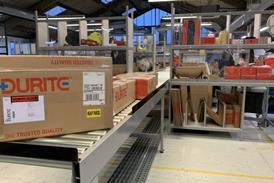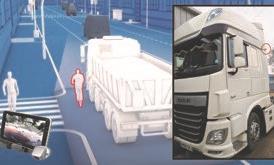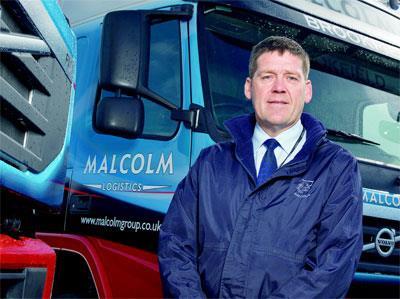
Malcolm Group is more than just a family haulier: it’s a multi-modal 3PL with road, rail and warehousing; it’s a construction and civil engineering giant and one of the most prominent logistics employers in Scotland’s central belt. MT ranks the firm as the 22nd largest in the UK industry by turnover, and its family name sits alongside Stobart, Turner and Sutton in the annals of British haulage.
It was founded in Linwood on the outskirts of western Glasgow in 1930, which finds itself thrust into the spotlight this year. The Commonwealth Games take place in the city this summer, giving the region an international profile . Malcolm Group chief executive Andrew Malcolm says the Games are “brilliant for Scotland” and will regenerate a lot of the city. That has had a positive effect on Malcolm Group’s varied business interests. “It could not have come at a better time,” says Malcolm.
Later this year there is the ballot on Scottish independence. The outcome could have a dramatic effect on Scotland’s most prominent operator. “I am engaging with politicians,” says Malcolm. “I am engaging with official parties and associations. I am taking an independent view at this stage. I need to sort out in my mind what is in the best interests of my business, my employees and my customers.
“I think there are a lot of questions to be answered. My view is irrelevant at this time. My view is what is in the best interests of The Malcolm Group.”
He says his wish would be for politicians to stop the point-scoring debates and start talks based on facts because, in his eyes, the facts regarding the pros and cons of the Yes and No campaigns have not been completely stated.
No vote
“The thing I have said to some of the No campaigners as well, is what does the No vote mean for Scotland? I think that more of the same is not what Scotland wants either. We have got to understand what does a No vote actually give Scotland?
“I am sitting on the fence. I am starting to build a view but that is one for me and round about June or July I will have to put a stake in the ground on where the business lies.
“There is so much uncertainty about Scotland’s future. There are a lot of questions that still need to be answered. I just hope people vote with their heads and not their hearts.”
Buyback
As a businessman, Malcolm craves stability. This, in part, explains the rationale behind the management buy-out (MBO) he led with his brother Walter that took the Malcolm Group business from Grampian Holdings in 2005 and off the London Stock Exchange.
The consortium had been divesting assets throughout the late 1990s and early 2000s (at its peak it had 24) until the Grampian Holdings business listed on the Stock Exchange was pretty much Malcolm Group in all but name. The MBO followed a turbulent three years for Grampian under the scrutiny of City investors, who were putting a business that prides itself on its stability under pressure to expand and expand quickly.
“I thought it would devalue the Malcolm brand, the Malcolm principles and everything about it,” says Malcolm unequivocally. “The board started looking at a lot of options. At the end of that process in 2005 the Malcolm Group was taken back by the Malcolm family. It was backed by Bank of Scotland and we have not looked back since.
“The only regret I have is that I wish I had taken the business out of Grampian first, because there was some legacy business that came with that. We are 99% clear of that.”
He says the good thing about being a private company and not being listed is that Malcolm Group is no longer measured on like-for-like growth, like-for-like sales or market share. What Malcolm describes as “the stuff the City puts you under pressure to do to keep it happy”.
“We now run a business that is right for our customers, our funders and our employees,” he says. “We can make a decision about where we want to consolidate, or if the market improves we can make a decision about where we want to increase.”
Turnover in WH Malcolm – the primary subsidiary of the Malcolm Group – was up 2.8% to £177m in the year ended 31 January 2013, from £173m in the previous financial year. Pre-tax profit in the division rose to £9m, from £7.7m in 2011/12. The split of the business between logistics and construction is roughly 60/40 and in 2012 it secured a £50m refinancing deal with Santander, HSBC and Barclays. The latter has provided funding to the tune of £23m for working capital purposes.
That said, Malcolm says the business is not motivated by turnover. He is concerned the constant drive for growth could damage an industry whose role it is to support its customers.
Growth for growth’s sake
“A lot of people are quick to go into a customer and say how much they can save from day one. We will tell our customers what they can take out of the business, but also keep out of the business. The problem is that some of the big 4PLs just need to get growth for growth’s sake, and that is a big worry,” he cautions.
Malcolm is motivated on long-term relationships, with customers, suppliers and employees. “We are motivated on profit and cash,” he says. “But we invest heavily back in the business every year, whether it is property upkeep or fleet replacement or how to educate our staff. Hopefully, by default if we get that right then growth will come with it.”
Every truck, every trailer and every van you see in the Malcolm brand was bought outright. That is the principle on which Malcolm Group runs its business.
“We still maintain the majority of the fleet in-house. Some people will probably say we over maintain, but we get more mileage out of our fleet than most people would get. A large proportion of our fleet is double-shifted. In our logistics fleet 70% of that is used around the clock. That is key to the business. We are using the assets. That is a key aspect to transport.
“At the end of the day the difference between making a pound and losing a pound is the efficiency of your business and how you run it. Our road transport fleet will increase this year and that is the first time it has increased in 15 years,” he says.
Euro-6
Part of the challenge of increasing the fleet has been the Euro-6 deadline. Malcolm says he has refreshed the fleet in the past 18 months and does not expect to order anything further this year (the group runs 475 trucks).
“We have had a Euro-6 come from every manufacturer. We have had a new Scania on the road since October, from March we have put on a new Volvo FH and Volvo FM along with a Mercedes-Benz and a new MAN is due to arrive in late April for a May registration,” he says. “This is the trial. We bought well ahead last year with a number of Euro-5s that we derogated. They all went on the road on 1 March. This is us now getting into that trial.”
Malcolm is a three-brand organisation – Volvo, Scania and MAN, which it has been with for more than 40 years. However, the group has run Mercedes vans and cars for a long time and there are now two Mercedes HGVs on the fleet. “I have been impressed with Mercedes: the product and the people,” says Malcolm. “The manufacturers we have chosen to work with have done a lot of work over the years to make sure we are getting the maximum out of the vehicles.”
His major downside on the introduction of Euro-6 is the price premium attached to the product. He says that with the best will in the world, the haulage sector has a lot of work to do to get the right rate for the job it does, so if it is paying a premium to run Euro-6 it is going to struggle to get that cost back from the customer.
Longer semi-trailers
Malcolm Group has been keen to engage with cutting-edge trailer technology because it sees many benefits for its customers. It has now successfully applied for 130 longer semi-trailers to run on its fleet, all of which are committed to build this year.
“We have followed the letter of the law when the first applications came out. I think we had 15,” he says. Changes to the trial, run by the DfT, that came into effect in September 2013 mean operators can dictate whether they want to run 14.6m or 15.65m longer semi-trailers. Before the changes, just 550 trailers out of 1,800 allocations had been put on the road, about 100 of them 14.6m long.
“Longer trailers are a good concept,” says Malcolm. “Too many applied for the licence and didn’t use them, so we lost some credibility. We have to make more use of it.”
Shared resources
Making use of assets is key to the Malcolm Group way of running things. It buys assets that can be used in any customer base and in any market sector, which means any vehicle can be used for any customer at any time.
“The two divisions, construction and logistics, stand alone,” says Malcolm. “They both use trucks and both use drivers. We do a lot of interaction with shared resource and shared labour. Our property maintenance team is a shared resource, as is most of our health and safety and training. That is where we get the synergies. Likewise, over the years I might have sold some tippers and bought some artics and I have got that flexibility in the fleet.”
Malcolm Group also moves more than 1,200 domestic loads a week by rail, and for the past seven years has run Daventry International Rail Freight Terminal. It’s a business ripe with opportunities, but one that faces several challenges.
Malcolm says: “It has worked well. Road can survive without rail, but rail cannot survive without road. I see it as a combination. Anywhere we run a rail route; we run a parallel road route alongside it.”
Dependence on grants
The main concerns are that passenger rail continues to dominate the space on the network and that freight transport by rail is still dependent on grant support.
“We are running between 32 and 36 containers per train, running four services a day – twice in each direction. Rail has a lot of scope, but a lot of things have to work right to get rail to work,” he says.
“If something is time sensitive and it misses the train, it can catch a truck on our 24/7 parallel road service. When we started in 2001 we ran two trains a week and nothing was time sensitive. Today, most of what we move on rail is time sensitive. It is all the retailers; they are all committed to rail. We are involved with most of the retailers moving stock by rail.”
Given the challenges Scotland faces this year, it will be interesting to see how its largest haulier emerges on the other side. What we do know is that Malcolm Group won’t be busting a gut to go for growth for growth’s sake.
“What we always try and do is enhance the service offering to our existing clients,” says Malcolm. “We want to give them more and more from what they choose as their supplier. The sectors we are in we are happy with.
“We have our foot in the door with a lot of good customers. And our key objective is to try and bring on a couple of blue-chip names each year. Hopefully, and I stress the word hopefully, in a small way to get in there and
by service and reputation that is when organic growth will come, from our existing customer base,” Malcolm says.

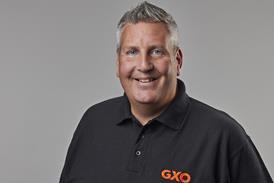

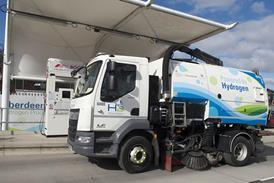


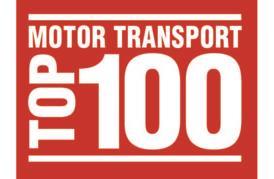


![Mercedes-Benz_eActros_600_(1)[1]](jpg/17820_mercedesbenz_eactros_600_11_978080.jpg)

